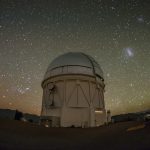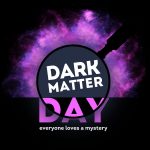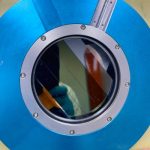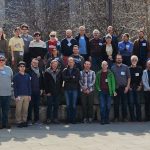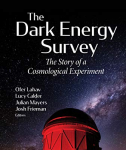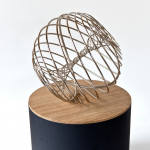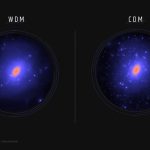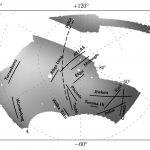The Dark Energy Survey (DES) Collaboration announced the latest results combined weak lensing and galaxy clustering and incorporated four dark energy probes from a single experiment for the first time. This is the culmination of more than 20 years of work by the DES, which was proposed in 2005. Fermilab led the construction of the… More »
Alex Drlica-Wagner
The Fermilab CPC is partnering with Adler Planetarium to host its 7th annual Dark Matter Day event! This year Dark Matter Day will be held at Adler Planetarium on Wednesday, November 2nd from 11AM-3PM. More details can be found on Adler’s event page. Videos from some past Dark Matter Day events can be found here:… More »
A team led by the Fermilab CCD Group performed the first on-sky demonstration using Skipper CCDs on the SOAR Telescope in Chile. This demonstration helps retire perceived risks for using this technology in future cosmology experiments recommended by the P5 Report such as DESI-II and Spec-S5. This project was a collaborative effort from Fermilab, UChicago,… More »
The Fermilab Cosmic Physics Center is proud to welcome five new Fermilab Cosmic Physics Center Fellows. Profs. Kyle Dawson (University of Utah), Klaus Honscheid (Ohio State University), Paul Martini (Ohio State University), Marcelle Soares-Santos (University of Michigan) – Coordinated R&D for a Stage-5 Spectroscopic Facility Dr. Fernando Chierchie (CONICET, Universidad Nacional del Sur) – Readout… More »
The Fermilab CPC is partnering with Adler Planetarium to host its 5th annual Dark Matter Day event! This year Dark Matter Day will be held at Adler Planetarium as part of the “Adler at Night” series on Wednesday, November 1st from 5PM-9PM. Adler at Night is free to Illinois residents! Find out more details in… More »
The Dark Energy Survey book is out! “The Dark Energy Survey: The Story of a Cosmological Experiment” tells the story of the DES project from original conception, the design and construction of DECam, early science results, and cosmological measurements with the first year of DES data. The book includes chapters written for a non-specialist reader… More »
Fermilab CPC scientist Javier Tiffenberg, along with collaborators Rouven Essig (Stony Brook University), Tomer Volansky (Tel Aviv University), and Tien-Tien Yu (University of Oregon) have been awarded the 2021 New Horizons in Physics Prize “For advances in the detection of sub-GeV dark matter especially in regards to the SENSEI experiment.” Congratulations Javier and the… More »
Scientists in the Dark Energy Survey released results that have been five years in the making. Researchers used the world’s most complete census of dwarf galaxies around our Milky Way galaxy to probe the nature of dark matter, an invisible form of matter that dominates the universe. These new measurements provide information about what dark matter… More »
Also announces discovery of eleven stellar streams, evidence of small galaxies being eaten by the Milky Way At a special session held during the American Astronomical Society meeting in Washington, D.C., scientists on the Dark Energy Survey (DES) announced today the public release of their first three years of data. This first major release of… More »










